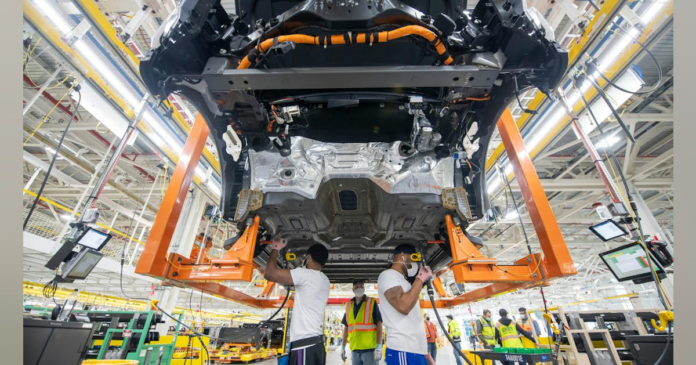The move is a look at just how complicated navigating the bumpy EV adoption curve can be. Automakers have made production decisions based on demand, but they’re also looking to maximize their profitability to continue to invest in new technologies and multiple powertrain options for customers since many remain reluctant to move into EVs because of higher prices, range anxiety and other changes that come with them.
The Rouge Electric Vehicle Center’s last shift for the year will run Nov. 15, so the first canceled production day will be Nov. 18. The assembly line won’t start moving again until Jan. 6. The seven-week idle also includes the previously scheduled holiday shutdown the week of Dec. 23. The plant employs about 800 people.
Automotive News was first to report on the plant idling.
In April, the plant moved to a one-shift operation in a decision that affected 1,400 people. Hundreds of employees were able to transfer to the Michigan Assembly Plant down Michigan Avenue in Wayne where Ford at the time was expanding production of the Ranger midsize truck and Bronco SUV.
Ford executives have promised its second-generation EVs will be less costly than its current generation, and CEO Jim Farley has said a new product won’t launch unless it can be profitable within a year. Production of the Lighting began in 2022.
Farley on an earnings call this week said the company had reduced EV cost by $1 billion this year and decreased capacity by 25%. It lost $1.2 billion in Model e for the third quarter, though that showed improvement from the same quarter a year ago.
The downtime also comes after Ford earlier this month launched its “Power Promise” campaign. Through the end of the year, the automaker is paying for a Level 2 home charger and its installation for customers buying or leasing a new EV.
©2024 The Detroit News.Visit detroitnews.com. Distributed by Tribune Content Agency, LLC.


